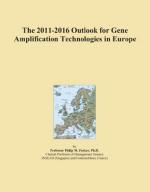|
This section contains 2,329 words (approx. 8 pages at 300 words per page) |

|
The polymerase chain reaction (PCR) is a laboratory technique for "amplifying" a specific DNA sequence. PCR is extremely efficient and sensitive; it can make millions or billions of copies of any specific sequence of DNA, even when the sequence is in a complex mixture. Because of this power, researchers can use it to amplify sequences even if they only have a minute amount of DNA. A single hair root, or a microscopic blood stain left at a crime scene, for example, contains ample DNA for PCR.
PCR has revolutionized the field of molecular biology. It has enabled researchers to perform experiments easily that previously had been unthinkable. Before the mid-1980s, when PCR was developed, molecular biologists had to use laborious and time-consuming methods to identify, clone, and purify DNA sequences they wanted to study. Kary Mullis was awarded the 1993 Nobel Prize in Chemistry...
|
This section contains 2,329 words (approx. 8 pages at 300 words per page) |

|


